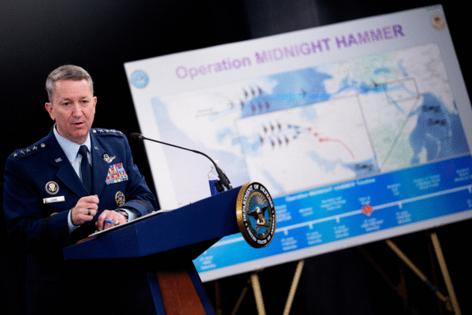John M. Crisp: The United States v. Iran -- What's next?
Published in Op Eds
About 12 hours before its Sunday morning deadline, this column was overtaken by events.
By Saturday night, I’d written 675 words in support of diplomacy over an attack by the United States on Iran. Arguably, diplomacy worked in 2015 when the five permanent members of the U.N. Security Council, plus Germany, developed—and Iran agreed to—the Joint Comprehensive Plan of Action, an accord designed to provide Iran with sanctions relief and other benefits in exchange for limitations on its nuclear program.
The JCPOA may not have been perfect in its design or execution, but what deal is? By definition, a deal is a compromise between two otherwise irreconcilable interests: Nobody gets everything he wants.
But by most accounts, Iran was complying with the terms of the JCPOA. In March 2018, the Director General of the International Atomic Energy Agency reported on his agency’s verification of Iran’s compliance, saying, “As of today, I can state that Iran is implementing its nuclear-related commitments.”
Nevertheless, in May 2018 President Donald Trump, in his first term, abrogated the JCPOA and reimposed severe sanctions on Iran. I don’t know if Trump’s withdrawal from the JCPOA made the current war inevitable, but it certainly made a diplomatic resolution much less likely.
Still, I’d hoped that Trump might maintain his openness to a diplomatic resolution for the two weeks he implied were available, especially in light of doubt about whether Iran actually intends to build an atomic bomb. In March, Director of National Intelligence Tulsi Gabbard, whose job is to gather and analyze the collective data of our various intelligence agencies, testified before Congress that Iran has no such intention.
Trump disagrees with Gabbard, but perhaps this could have been sorted out in the next two weeks. We could have always bombed Iran later.
So much for diplomacy. Now that we’ve bombed Iran, we have a different set of uncertainties:
For example: I don’t know if this concern will turn out to be the biggest or the smallest of the many that emerge from our attack on Iran, but it bears some consideration: Trump has committed what is clearly an act of war without the authorization of Congress, in whom our nation’s founders wisely vested the sole power to declare war.
Certainly, past presidents have played loose with their use of American troops and firepower, but they’ve usually sought the authorization of Congress before or after the fact. At present, the leaders of the House, Mike Johnson, and the Senate, John Thune, are on board with the attack, but that in no way resolves the constitutional question.
What will be the effect of allowing this immense expansion of presidential power to go unchecked?
Now that the bombs have fallen, many have asked, “What’s next?” Unfortunately, the answer to that question is largely out of our hands. Perhaps Iran will grovel meekly at the negotiating table, but that seems highly unlikely.
But maybe a better question is not “What’s next?” but “Who’s next?” If Trump’s attack on Iran is successful, whatever that means, does Panama have a chance? Trump has already said that he’s open to using force to take back the canal. And the same with Greenland. What about Canada?
Once a man with authoritarian tendencies has the taste of blood and victory in his mouth, the constitutional constraints of a nation such as ours probably don’t seem very important.
But let’s reserve judgment. After Iran launched a telegraphed, half-hearted retaliatory attack on American bases in Qatar and Iraq, Israel and Iran agreed to a fragile cease-fire, which, as of Tuesday, seems to be working. History doesn’t bode well, but another war in the Middle East might turn out just fine.
But in his biography of President George W. Bush, Jean Edward Smith argues that Bush’s invasion of Iraq in 2003 is the biggest foreign-policy blunder ever committed by any president.
Bush has a chance of being relieved of that dubious distinction. If things go bad in Iran—or Panama or Greenland—that questionable honor bears considerable possibility of being bequeathed to Trump.
_____
_____
©2025 Tribune Content Agency, LLC

























































Comments